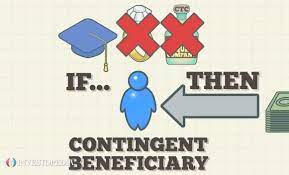Having a living trust set up can help you skip the probate process and give your loved ones control of your assets in the event of your incapacity. However, there are various trust accounts available for various functions. The “settlor” of a trust creates the trust documents, chooses a trustee to oversee the trust’s assets, and then transfers ownership of those assets to the trust. This legal document specifies the people and circumstances under which you can get money out of a trust fund. Although the specific regulations for withdrawing funds from a trust vary depending on its structure, in most cases, only the trustee has access to the trust’s assets. If you are the trustee of your own trust, you are free to utilize the assets in any way you see fit, including making withdrawals. Read on for more info on how to get money off a trust fund
What is a Trust Fund?
A trust fund enables a person (the grantor) to set aside resources for the benefit of one or more beneficiaries, such as money, investments, real estate, and life insurance. A trustee, on the other hand, is responsible for overseeing the trust. Such a person may be a professional (financial institution, lawyer, or financial advisor) or someone the grantor is acquainted with. Professional trustees usually receive compensation from the trust for their managerial work.
The grantor and estate counsel usually come together and decide on the trust’s parameters;
- When the grantor dies, do their assets go to their heirs, or do they get them while they are still alive?
- When assets are transferred into a trust, does the grantor have any control over those assets, or do they become the property of the trust?
- Will there be a beneficiary, and will they also receive a specific amount from the trust that will be distributed to charity?
All of these choices generally have an impact on whether or not the trust’s assets are regarded as a part of the grantor’s estate at the time of their passing and as a result, whether or not estate taxes will apply.
Basically, there are two distinct trust kinds with crucial characteristics that influence the grantor’s authority over the assets in the trust and the tax consequences for the grantor’s estate:
#1. Revocable Trusts
permit the grantor to alter beneficiaries while maintaining control over the trust’s assets. Even the entire trust can be destroyed by them! In the event of their incapacity, the grantor may also designate a successor trustee to oversee the trust on their behalf. However, because the grantor is still regarded as the legal owner of all the assets, estate taxes will be due after they pass away. Additionally, if they have debts when they pass away, the assets might be utilized to settle them.
#2. Irrevocable Trusts
cannot be reversed by the grantor, who is also prohibited from altering the trust’s provisions or beneficiaries once it has been established. Also, assets placed into an irrevocable trust are no longer owned by the grantor, therefore they are no longer liable to estate taxes upon the grantor’s passing, and creditors cannot seize those assets to satisfy the grantor’s debts.
Can I Withdraw Money from Trust?
If you are the trustee, you can take money out of your own trust. Given your stake in the trust’s assets, you’re free to take money out whenever you like. Additionally, you can add or remove assets from the trust.
How Long Does it Take to Withdraw Money from Trust?
According to numerous considerations, such as the complexities of the estate assets, creditor concerns, etc., it generally takes the trustee between 12 and 18 months to transfer the assets to the beneficiaries and heirs if a trust requires one-time asset distribution.
Can You Transfer Money from a Trust Account to a Personal Account?
The grantor of an irrevocable trust stipulates that the trustee may only withdraw funds to be used for the benefit of the trust in accordance with the terms of the trust, such as distributing income to beneficiaries or paying for maintenance costs. The trustee must never at any time use these funds for their own personal benefit.
How to Get Money Out of a Trust Fund
Generally, if you have a trust that is revocable, you have the ability to get money out of a trust fund by submitting a request to the trustee. In the event that you are named as the trustee, you will have the authority to remove monies and assets from the trust in whichever manner you consider appropriate.
On the contrary, when creating a trust, one of the most important decisions to make is how to get money out of a trust fund for the beneficiaries. Regardless, you can get money out of a trust fund for a beneficiary in several different ways.
#1. Get the Trust in a Lump Sum all at Once (or a few large payouts)
Getting all of the assets at once is the simplest way to access a trust fund. When the beneficiary reaches a specific age or life milestone, the grantor may designate that they get the assets (such as turning 30 or graduating from college).
A trust can also pay out money in multiple sizable installments. For instance, if you are a beneficiary of a trust, it’s possible that some of the income was applied to your educational expenses. The remaining funds might then be distributed over the following few decades. There have been grantors who have their trusts set up so that they receive 25% at age 25, another 25% at age 30, and the remaining trust balance at age 35.
Both blessings and curses might result from receiving a sizable sum of money or investments all at once. You do, however, receive a sizable sum of money! However, it can be challenging to decide what to do with such a large sum of money (and any associated feelings, depending on your connection with the grantor). Many of my customers have expressed contradictory emotions about inheriting wealth. Working with a financial adviser might be beneficial in determining how to honor this money in a way that makes sense for you at this point in your life while also setting aside a portion for your future self.
#2. Benefits from the Trust’s Spread Out Smaller Payments
The grantor has the option to split the dividend from the trust fund into even smaller portions. A monthly payment from the trust for the remainder of your life is one illustration. Trustees frequently have the ability to give trust funds to beneficiaries for their “general well-being.” As a result of its widespread use, one distribution strategy is frequently referred to as “HEMS,” which stands for health, education, maintenance, and support.
As a protective strategy, grantors may decide to make numerous smaller payments to beneficiaries as opposed to a single large payment. Perhaps they are concerned that the beneficiary will quickly go through a sizable trust fund payout, or they don’t want the recipient’s spouse to be able to claim a split of the funds in the event of a divorce.
The benefit of doing trust payouts in this manner for the grantor is that you enable the beneficiary to view the trust as more of a source of income than a windfall. The drawback however is that it will cost more to administer the trust because it will require a trustee to oversee it for a longer period of time.
How Does Money Get Distributed from a Trust?
The grantor can establish the trust so that the funds may pass directly to the beneficiaries without any restrictions. A new deed can be drawn up, or the trustee may sell the asset and give the proceeds to the beneficiary in the form of a check, bank draft, or cash.
Can I Access My Trust Fund Early?
Money from a trust may be distributed early if it was set up basically to ensure your financial stability, health, and well-being. Once you understand the terms, you can request a distribution from the trustee. You should however consult a probate lawyer if the trustee refuses to comply.
How To Get Money Out Of A Trust Fund Early
Most parents desire to have a financial strategy in place for their kids in case something unfortunate occurs. Creating a trust fund is one approach to offer security. A trust fund is a collection of assets held by a trustee for the benefit of a beneficiary. But there are restrictions. Typically, beneficiaries cannot get the assets until they reach a specific age or until certain events occur.
However, sometimes, it can be difficult to wait for the money to be released if you are experiencing financial difficulties. By selecting a probate lawyer, you can begin the procedure. Below are ways to get money out of a trust fund early;
#1. Consult The Trustee
To begin with, arrange a meeting with your trustee. Informing your trustee that you are having difficulties with living expenditures is beneficial. You must question him or her regarding the conditions of your trust fund. The money might be delivered early if the trust’s primary goal was to provide for your support, maintenance, and health. You must ask the trustee to release some funds to you after learning the terms. When the trustee refuses, you should retain a probate lawyer.
#2. Submit a Petition
To get money from your trust distributed, you might need to file a petition in probate court. You must also inform the judge in a petition that you require money for living expenses. An attorney can help you file and prepare the papers in court.
#3. Make a Request for the Removal of Your Trustee
Collaboration with some trustees might be challenging. There could be a number of reasons why your trustee rejected or ignored your requests to access your trust. On the other side, some trustees are ignorant of the trust fund’s rules, while others are simply inattentive. Hence, you can request a change of your trustee when you submit your petition. The judge may impose surcharges on the trustee if he determines that the trustee’s actions resulted in any damages for the beneficiary.
One need not be wealthy to establish a trust fund. It’s intended to make it possible for a person’s money to remain valuable after death. Because they wish to leave money to their children but still have influence over how it is spent, many parents opt for this strategy. It is beneficial to speak with an experienced attorney if you are a beneficiary of a trust and require assistance.
Is Money Withdrawn from a Trust Taxable?
Taking money out of a trust is taxed differently from taking money out of regular investing accounts. Taxes must be paid by trust beneficiaries on any income and other distributions they receive. Distributions of principle from a trust on the other hand are tax-free to the beneficiaries.
What are the Negatives of a Trust?
- The expenditures of setting up and administering trusts rank among their biggest drawbacks.
- The establishment and dissolution of trusts must follow complicated processes.
- The trustee receives custody of the trustor’s assets.
- Trustees must adhere to the tight guidelines outlined in the trust deed.
- If trust laws are broken, assets may be subject to probate.
- If trust laws are altered or broken, trusts may lose their advantages of tax savings and asset protection.
How Much Money is Usually in a Trust Fund?
Generally, it’s estimated that only 2% of Americans inherit trusts from their parents. The average amount transferred to beneficiaries via trusts is $285,000 while the average trust assets are $4,062,918.
Who Holds the Money in a Trust?
There is a donor, a recipient, and a trustee in a trust fund. A trust fund is a legal arrangement in which the creator (the “grantor”) specifies the conditions under which its assets are to be stored, collected, and eventually disbursed. The beneficiary receives the assets or other advantages from the fund. On the other hand, the trustee controls the assets and carries out the directions of the beneficiary.
What Happens to Money in a Trust Fund?
Trust funds may include cash, bank accounts, real estate, stocks, companies, businesses, heirlooms, and other kinds of investments. However, until specific conditions are met, when these assets are delivered to the beneficiaries, they stay in the Trust.
What are the 3 Types of Trust?
Here’s a rundown of the three main types of trusts;
- Revocable Trusts.
- Irrevocable Trusts.
- Testamentary Trusts.
Conclusion
If you have a trust that is revocable, you have the ability to get money out of a trust fund by submitting a request to the trustee. If you’re named as the trustee, you will have the authority to remove monies from the trust in whichever manner you consider appropriate.
However, when creating a trust, one of the most important decisions to make is how to get money out of a trust fund for the beneficiaries. Regardless, you can get money out of a trust fund for a beneficiary in several different ways.
How to Get Money Out of a Trust FundFAQs
Which trust will best safeguard your assets?
Irrevocable Trust
If your assets are in an irrevocable trust, they are safer from lawsuits and creditors. Irrevocable trust assets are not regarded as part of the trustor’s private estate. For tax purposes, this implies that the IRS will disregard these assets when calculating the worth of your estate.
Who would be the ideal manager of a trust?
If your trust is large or contains complicated assets, it may be in your best interest to hire a professional trustee, such as a bank trust department, a lawyer, or a financial consultant.
Related Articles
- Beneficiary Of A Trust: Definition, Rights & Best US Practices.
- REVOCABLE TRUST: What is Living Revocable Trust?
- WHAT IS A TRUST ACCOUNT? How To Open One
- How To Set Up A Trust Fund: Step-by-step Guide






